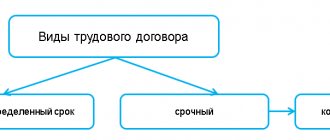Often, employers manage the bonus fund at their own discretion: some employees are given increased bonuses, while others, on the contrary, are not paid or are reduced for any misconduct. Does the employer have the right to do this? Can an employee challenge his decision?
A bonus is one of the types of incentive payments (Article 129 of the Labor Code of the Russian Federation). Article 191 of the Labor Code of the Russian Federation states that an employer can reward employees who conscientiously perform their job duties, in particular:
- declare gratitude;
- give a bonus;
- reward with a valuable gift, certificate of honor;
- to present to the title of the best in the profession.
Bonus systems are established by collective agreements, agreements, local regulations in accordance with labor legislation and other regulatory legal acts containing labor law norms (Article 135 of the Labor Code of the Russian Federation).
Types of disciplinary sanctions are listed in Art. 192 of the Labor Code of the Russian Federation, according to which for committing a disciplinary offense, that is, for failure to perform or improper performance by an employee through his fault of the labor duties assigned to him, the employer has the right to apply the following disciplinary sanctions:
- comment;
- rebuke;
- dismissal for appropriate reasons;
- other disciplinary sanctions established for certain categories of employees (for example, for civil servants) by federal laws, charters and discipline regulations.
Two conclusions follow from these standards:
1) the bonus is an incentive payment, the bonus system is established by the relevant internal documents;
2) deprivation of the bonus (reduction in its size) cannot be applied as a disciplinary sanction.
So, the employer does not have the right, at his discretion, to reward some employees and reduce the bonus for others? Looking ahead, we note that everything depends on how the conditions for the payment of bonuses are formulated in the collective agreement, local regulations and the employment contract with the employee.
A detailed commentary on this topic is contained in the Letter of the State Labor Inspectorate in Moscow dated February 26, 2020 No. 77/7-5692-20-OB. In our explanations we will rely on this letter.
Where, according to the Labor Code, does the employer establish the procedure for awarding bonuses and depriving them of bonuses?
The Labor Code allows you to set an employee’s salary, making it up of several parts (Article 129):
- payment for the work itself;
- additional payments for special working conditions;
- incentive payments, among which bonuses usually play a leading role.
If the first 2 parts are sufficiently regulated by law, then with regard to establishing bonus rules, the employer can act independently (Article 135 of the Labor Code of the Russian Federation), determining at its discretion:
- quantity, types and, accordingly, a specific list of bonuses paid;
- the frequency of their accrual and the circle of employees who will be entitled to one or another type of bonus;
- a list of those indicators, the fulfillment of which entails the emergence of the right to receive a bonus;
- a system for assessing the value of each type of bonus, the procedure for considering the results of this assessment and a procedure that allows an employee to challenge these results;
- grounds that serve as a reason for depriving an employee of a bonus.
Attention! Hint from ConsultantPlus It will not be a violation if you give an employee a one-time bonus for special work achievements, even if a special bonus procedure is not provided. This is your right... (read more about rewarding employees with money in K+). Trial access to K+ is free.
The Labor Code of the Russian Federation does not contain any restrictions for establishing bonus rules, obliging the employer only to:
- enshrine them in an internal regulatory act, without prohibiting the use of an employment agreement with a specific employee as such an act;
- coordinate the content of this act with representatives of the labor collective, and for state unitary enterprises and municipal unitary enterprises - with uniform recommendations developed by the Russian tripartite commission (consisting of representatives of the Government of the Russian Federation, trade unions and employers) on the regulation of social and labor relations;
- not to worsen the terms of remuneration of a particular employee in comparison with the developed normative act, and the conditions of this act - in comparison with the norms of labor law;
- familiarize each employee with the rules for bonuses against receipt.
Thus, establishing a procedure for depriving an employee of a bonus under the Labor Code of the Russian Federation means enshrining the rules of this procedure in the internal regulatory act on bonuses.
For information about which documents may establish bonus rules, read the materials: “The procedure for paying bonuses under the Labor Code of the Russian Federation” and “Accruing bonuses to an employee in different situations .
The article “Calculation of the quarterly bonus for actual time worked” will tell you how to calculate the bonus for the time actually worked and the peculiarities of its taxation.
Grounds for deprivation of bonuses - why are bonuses deprived at work?
What can you deprive of a bonus for? There are many reasons for non-payment of premiums. The reasons most often indicated in a regulatory act are:
- whether the employee has received a disciplinary sanction during the bonus period;
- the presence of a disciplinary offense during the bonus period (regardless of whether it entailed disciplinary action);
- dismissal during the bonus period;
- bonus period not fully worked out.
In addition, deprivation of a bonus can be carried out by decision of the manager, the right to which:
- or is enshrined in the internal regulatory act on bonuses as one or the only reason for non-payment of bonuses;
- or appears if the normative act on bonuses does not contain a description of the procedure for depriving the bonus.
The employer's participation in the reduction of bonuses for the reasons listed in the normative act can also be expressed in the fact that it determines what part of the total bonus amount the employee is deprived of the bonus.
Who should not be deprived
At the legislative level, there are categories of workers who are prohibited from being deprived of bonuses. It is believed that an employer cannot impose several disciplinary measures against an employee. For example, it is prohibited to deprive an employee of a bonus and impose an additional fine.
Sometimes management deprives an employee of bonuses only because he came to work in clothes that do not comply with the dress code. Such actions by management are considered illegal.
A person's clothing cannot in any way affect the quality of the work performed. Of course, if a special form is not provided for by safety regulations. It is the right of the employer to assign or deny a bonus. There are no clearer deprivation rules.
Is deprivation of a bonus a disciplinary sanction or not?
Is deprivation of a bonus a disciplinary sanction? In no case! The list of disciplinary sanctions is strictly defined by Art. 192 of the Labor Code of the Russian Federation - and deprivation of bonuses is not among them.
What types of disciplinary sanctions are there and how they are applied to employees, read the material “Types of disciplinary sanctions under the Labor Code of the Russian Federation.”
At the same time, a direct connection between disciplinary action and deprivation of bonuses, as a rule, exists, since the presence of this penalty among the reasons why an employee loses the right to bonuses occupies a leading position. However, a certain sequence must always be followed: first, a disciplinary sanction for an offense, and then the deprivation of a bonus due to the presence of this sanction.
Imposing a disciplinary sanction is a right, not an obligation of the employer (Article 22 of the Labor Code of the Russian Federation), that is, having considered the circumstances of the offense, he may not punish the employee. Then, in a situation where the manager makes a decision not to apply a disciplinary sanction for an offense committed, and an internal regulatory act provides for the deprivation of a bonus precisely for the presence of a penalty, the employee cannot be deprived of bonuses. But if a disciplinary offense is specified as a basis for deprivation of a bonus, then regardless of whether punishment follows, the employee will be left without a bonus.
A disciplinary offense and a disciplinary sanction are formalized according to certain rules that must be strictly observed so that the employee cannot challenge the established fact of the misconduct and the legality of the penalty and, accordingly, cannot claim that the deprivation of a bonus was unlawful on any of these grounds.
Regulatory framework
In addition to the basic salary, almost every employee receives a bonus. But the employer has the right to deprive the employee of additional remuneration for significant reasons. The grounds for depriving an employee of a bonus are specified in the employment contract and cannot contradict current Russian legislation.
Attention! From a legal point of view, depriving an employee of a bonus is not a disciplinary sanction. This is due to the fact that the bonus is awarded at the request of the employer for completing the assigned task. A prize in its essence is an encouragement. That is why, in addition to deprivation of the bonus, the boss can apply other measures against the negligent employee, for example, an oral or written reprimand entered into his personal file. The rule is regulated by Article 191 of the Labor Code of the Russian Federation.
But at its core, deprivation of a bonus is considered one of the most effective ways to influence an employee. After all, nothing motivates a person more than the fear of losing a certain amount of money.
But unjustified deprivation of bonuses by the employer is considered a punishable offense. Therefore, the boss has the right to refuse to pay an employee additional remuneration on grounds permitted by law.
These include:
- if the employee violated labor discipline or daily routine, for example, came to work later than the allotted time,
- if an employee systematically fails to fulfill the duties assigned to him as prescribed in the employment contract or job description,
- if a person has repeatedly performed the work specified in the contract, poorly, unsatisfactorily,
- if the employee missed a day of work,
- if an employee intentionally caused harm to the company, material damage.
According to the Labor Code of the Russian Federation, the employer has the right to both reward the employee and deprive him of additional remuneration. The rule is regulated by Article 192 of the Labor Code of the Russian Federation. It is believed that bonuses and deprivation of bonuses are an effective stimulant. Such influences help improve the quality of work.
Attention! Our qualified lawyers will assist you free of charge and around the clock on any issues. Find out more here.
What to do if bonuses were deprived without reading the order?
Can an employer deprive a bonus without an order? Yes it is possible. In a situation where, in the internal regulatory act on bonuses, which the employee was promptly familiarized with on receipt, one of the reasons for deprivation of a bonus is the reason why he was not accrued a bonus for the corresponding period, there is no need to draw up a separate order. In this case, the reason must be documented - the basis for not accruing the bonus. An employee who does not agree with the fact that he was deprived of a bonus will have to challenge not the reason for its non-accrual, but the legality of the basis on which the deprivation became possible.
The presence of an order to reduce bonuses becomes mandatory when the decision not to pay a bonus to an employee is made by the employer. This is possible in the following situations:
- when the basis for deprivation of a bonus is not in the list given in the regulatory act on bonuses, but the same act gives the manager the right to make a decision on deprivation of bonuses;
- when the regulatory act on bonuses indicates a decision on this made by the manager as the only reason for deprivation of a bonus;
- when the manager has the right to establish the amount of the share by which the amount of bonuses is reduced upon the occurrence of the grounds provided for deduction of bonuses by the normative act;
- when the normative act on bonuses does not indicate the grounds for deprivation of the bonus at all.
Attention! Sample from ConsultantPlus See sample order for deprivation of bonus from K+.
Get free trial access to K+ right now.
How to create an order
A sample order for deprivation of a bonus for absenteeism, drunkenness or on other grounds provided for by the regulations of the institution is drawn up in a free format, since there is no statutory act defining the order template. Include the following information in your order:
- about the institution (the header of the document reflects the name, date and registration number);
- about the name of the paper;
- about the employee (full name, position and department);
- about the period for which funds will not be credited;
- about the amount of loss;
- on the grounds due to which the deprivation occurred, with reference to the provisions of the document in which it is provided for.
A sample order for non-payment of bonuses is signed by the manager. Attached to the order are the documents that served as the basis for the decision made.
Can a pregnant woman be deprived of bonuses for being late?
Is it possible for a pregnant woman to be deprived of a bonus due to her violation of labor discipline, in particular due to being late? Yes, you can.
Pregnancy does not give the right to any special treatment for a woman expecting a child. Therefore, if a violation of labor discipline (i.e., a disciplinary offense) has occurred and this basis is present among the reasons indicated in the internal regulatory act as leading to the deprivation of a bonus, then a deprivation of bonuses will certainly follow.
It may not exist if the regulatory act specifies the presence of a disciplinary sanction as a basis for non-payment of bonuses. In this case, if when committing an offense there is no decision on punishment for it, there will be no deprivation of the bonus.
Bonus systems
Let's look at the main bonus systems:
- Payment of bonuses without obvious reasons (for example, based on the results of each month, without specifying the criteria for accrual). In this case, the procedure for depriving bonuses may also be established, for example, for employees committing disciplinary offenses).
- Accrual of bonuses for certain achievements of employees. Achievements may include implementation of the plan based on the results of various time periods, quality performance indicators, etc. Deprivation of bonuses can be made, for example, if an employee violates labor discipline, immoral behavior, theft of property, etc.
- Payment of bonuses based on KTU (labor contribution coefficient) and KTV (labor participation coefficient). KTU is a system of increasing and decreasing coefficients for a specific employee (for example, for fulfilling a plan, a coefficient of 1.2 is set from the base part of the bonus, i.e. the employee will receive a bonus increased by 20% for fulfilling a certain indicator). CTV is used for structural units and departments, and operates on the same principle.
When is deprivation of a bonus regarded as illegal?
Deprivation of a bonus can be considered illegal in the following cases:
- The basis for deprivation of a bonus is not included in the list given in the text of the employer’s internal regulatory act, and this act does not provide the employer with the right to make decisions regarding non-payment of bonuses.
- Documents for depreciation on the basis of the presence of a disciplinary sanction against the employee or the commission of a disciplinary offense have not been properly completed.
- There is no order to deprive a bonus in the case where the execution of such a document is mandatory (i.e. when the decision on deprivation of bonuses or on the size of the share of reduction in the bonus is made by the employer).
- Deprivation of a bonus occurs without familiarizing the employee with the order on depreciation in situations where the issuance of such an order turns out to be mandatory.
Results
The provisions of the Labor Code of the Russian Federation oblige the employer to independently develop rules for bonuses for employees, enshrining them in an internal regulatory act.
These rules usually include a section devoted to situations in which an employee is deprived of the right to receive bonuses. Most often, the loss of a bonus is tied to the commission of disciplinary offenses or the presence of penalties for them, which requires special care when drawing up all procedures related to violations of a disciplinary nature. For a number of situations, it is necessary to issue an order to forfeit the bonus, and the absence of such an order in these cases makes non-payment of the bonus illegal. You can find more complete information on the topic in ConsultantPlus. Free trial access to the system for 2 days.
Employer's liability
If the court finds an employer guilty of violating the rules for calculating bonuses, then his actions fall under Article 5.27 of the Code of Administrative Offenses of the Russian Federation.
According to paragraph 6 of Art. 5.27 of the Code of Administrative Offenses, a company management that wrongfully deprived an employee of a bonus is punishable by an administrative fine:
- for officials in the amount of 10,000 to 20,000 rubles,
- for individual entrepreneurs from 1000 to 5000 rubles,
- for legal entities from 30,000 to 50,000 rubles.
Watch the video. Salary fines, deprivation of bonuses and other monetary penalties at work:






